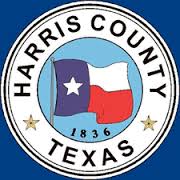There are a couple of stories all rolled into this, so my apologies for any confusion.
A ruling by a Harris County judge Friday will allow a recently-approved policy requiring bail bond agents to charge some defendants a 10 percent minimum to start Saturday after a last-minute lawsuit tried to stop it from happening.
Court records filed Friday showed a bail bondsman sued Harris County as an attempt to stop the new rule, which would require agents like her to charge defendants jailed on violent offenses a 10 percent minimum to secure their freedom after an arrest. But in court over Zoom late Friday afternoon, Judge Cory Don Sepolio rejected a temporary restraining order request, allowing the rule to take effect.
“The Bail Bond Board adopted this rule after hearing directly from the families of victims of violent crimes, community organizers, and law enforcement. Their decision was supported by Harris County Commissioners Court and leaders of both political parties,” a statement from Harris County Attorney Christian Menefee read. “I’m pleased with the court’s decision today to reject the request for a temporary restraining order that would have blocked this rule from being implemented.”
Regarding the temporary restraining order request getting rejected, Kevin Pennell — the plaintiff’s lawyer — said in an email Friday he had no comment.
The lawsuit follows the approval by the Harris County Bail Bond Board to require bondsmen to take in 10 percent or more of the surety bond minimum — set by a judge or magistrate — to make it more difficult for violent offenders to leave jail and go on to commit more crime. The proposed rule stemmed from concerns that defendants were being released on bail fees lower than the 10 percent and then being forced into payment plans.
[…]
The bail board, as the lawsuit points out, is designed to oversee the bonding business in Harris County. Up until March, the board primarily approved and renewed bail bondsman licenses. The Harris County Attorney’s Office determined that the board can do more than that and Commissioners Court passed a resolution urging its members to adopt rules regulating the minimum that a bondsman must collect to secure a defendant’s release from jail.
The board passed the rule April 13 after a failed vote the month prior.
I didn’t write about the initial failure of the board to pass a rule requiring that bail bond companies must charge a minimum of ten percent of whatever bail had been set. Bail band companies had been lowering that percentage from what had once been seen as a de facto standard of ten percent because of the misdemeanor bail reform. With fewer people needing bail bonds because fewer people were being assessed bail, bail bond companies saw their revenues decline and so they looked for new customers by lowering their fees so as to entice those who were still being required to pay bail but couldn’t afford their fees. It’s a complicated story. The Harris County Bail Bond Board, on its second attempt, passed a rule that made the ten percent minimum a requirement, and in response a bail bond company owner filed a lawsuit to stop it.
All About Bail Bonds owner Sunya Claiborne, plaintiff in the lawsuit, contends that her business is at stake because the minimum charge requirement is “classic price fixing and a per se antitrust violation without any grant of state authority to displace competition,” according to court documents. The county and Claiborne’s lawyers are expected later on Friday to debate whether a temporary restraining order and injunction should be granted.
“She reasonably fears that, unless she complies with these unlawful rules, her license will be suspended or revoked,” the lawsuit reads. “But if she does comply with them, she will be participating in an illegal price fixing scheme and violating her customers’ privacy rights.”
[…]
The new rule is at odds with how Claiborne, whose license the board renewed ahead of the most-recent vote, plans to conduct her business, according to the court documents.
“She intends to offer competitive pricing of less than 10% of the face amount of the bond to consumers who desire to purchase a bail bond for themselves, or their loved ones charged with a designated offense and qualify for reduced payment terms,” the lawsuit continued.
As a bail agent for the corporate surety Allegheny Casualty Co., she also worries that the new rule will put her at odds with the insurance company — which she fears could violate customer privacy. Part of the new rule requires that bail bondsmen have to report the premium amount collected ahead of the defendant’s release. The bondsmen would also have to report how the premium was paid and who paid it.
Premiums are, in some cases, documented in the public record. Affidavits of surety to surrender principal often list the premium and are filed by bail agents as an attempt to cut ties with a defendant’s bond, usually after a new charge. In filing the form, bail agents ask deputies to take the defendant into custody, while they keep the defendant’s bail deposit and stop being responsible for the person in the eyes of the court.
I’m pretty sure this is not what antitrust law was intended for, but what do I know? The initial request for a temporary restraining order was denied on Friday, and there will be a hearing for a temporary injunction on May 6. I don’t expect that to be any more successful, but we’ll see.

